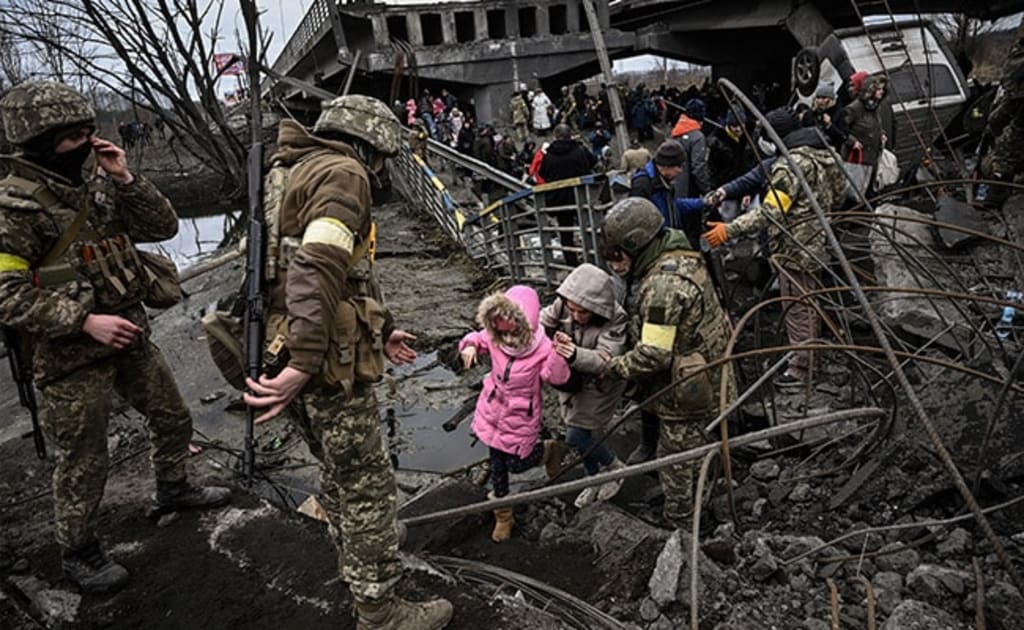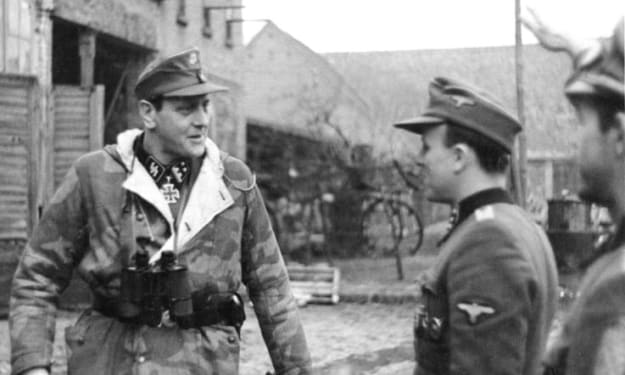Russia Ukraine war
Over view of Russia Ukraine war

Russia-Ukraine Conflict Overview
INTRODUCTION OF RUSSIA UKRAINE WAR
The conflict between Russia and Ukraine is a complex and ongoing situation that has its roots in the historical, cultural, and geopolitical dynamics of the region. While it would be challenging to provide a comprehensive introduction to the entire war, I can give you a brief overview.
The conflict escalated in 2014 following Ukraine's political shift towards the European Union, which led to the ousting of the country's pro-Russian president, Viktor Yanukovych. Russia, concerned about the potential loss of influence in its neighboring country, annexed Crimea, a peninsula in Ukraine, in March 2014. This move was widely condemned by the international community, and it resulted in significant tensions between Russia and Ukraine.
Following the annexation of Crimea, pro-Russian separatist movements emerged in eastern Ukraine, particularly in the regions of Donetsk and Luhansk. These separatists declared independence, leading to a series of armed clashes with Ukrainian forces. The Ukrainian government accused Russia of providing military support to the separatists, including troops, weapons, and logistical assistance. Russia denied direct involvement in the conflict, labeling it as an internal Ukrainian matter.
The conflict in eastern Ukraine has resulted in a significant loss of life, displacement of civilians, and extensive damage to infrastructure. Multiple ceasefires and peace agreements have been negotiated, such as the Minsk Protocol in September 2014 and the Minsk II agreement in February 2015. However, the implementation of these agreements has been challenging, and fighting has continued intermittently, with periods of escalation and de-escalation.
The war has had broader implications, including strained relations between Russia and Western countries. The European Union and the United States have imposed economic sanctions on Russia in response to its actions in Ukraine. The conflict has also led to a reevaluation of security dynamics in Europe and has had geopolitical consequences beyond the region.
It is important to note that the situation is dynamic, and there have been developments since my knowledge cutoff in September 2021. For the most up-to-date information on the Russia-Ukraine war, I recommend referring to trusted news sources or international organizations actively monitoring the situation.
REASON OF RUSSIA UKRAINE WAR
The reasons behind the Russia-Ukraine war are multifaceted and complex, influenced by historical, political, economic, and ethnic factors. Here are some key factors that have contributed to the conflict:
Historical Background: Ukraine has a long history of cultural and historical ties with Russia. It was part of the Russian Empire and the Soviet Union for many years. However, Ukraine gained independence following the dissolution of the Soviet Union in 1991. The legacy of this shared history and the question of Ukraine's geopolitical orientation have been contentious issues.
Geopolitical Struggle: Ukraine's strategic location, bordering both Russia and the European Union, makes it a significant battleground for competing geopolitical interests. Russia sees Ukraine as part of its sphere of influence and fears NATO expansion towards its borders. On the other hand, Ukraine seeks closer integration with the European Union and has aspirations to join NATO.
Ethnic and Linguistic Divide: Ukraine is ethnically and linguistically diverse, with a significant Russian-speaking population, especially in the eastern and southern regions. The issue of language rights and the protection of minority rights has been a point of contention between different regions and communities within Ukraine.
Annexation of Crimea: The annexation of Crimea by Russia in 2014 was a major trigger for the conflict. Russia claimed it was protecting the rights of ethnic Russians and Russian speakers in Crimea, while Ukraine and the international community considered it a violation of international law. The annexation heightened tensions and led to the broader conflict in eastern Ukraine.
Separatist Movements: The emergence of pro-Russian separatist movements in eastern Ukraine, particularly in the Donetsk and Luhansk regions, fueled the conflict. These movements declared independence, leading to clashes with Ukrainian government forces. The exact nature of Russia's involvement in supporting the separatists has been a subject of debate, with Russia denying direct involvement.
Economic Factors: Economic considerations also play a role in the conflict. Ukraine's desire for closer integration with the European Union threatened Russia's economic interests, as Ukraine was an important trade partner and transit route for Russian natural gas exports to Europe. Additionally, control over resources in eastern Ukraine, such as coal and industry, has economic implications.
It's essential to note that the reasons behind the conflict are multifaceted, and there may be differing perspectives on the causes and motivations of the parties involved. The war is influenced by a combination of historical, geopolitical, ethnic, and economic factors, which have contributed to the complex dynamics seen on the ground.
RUSSIA SOLDIERS DIED
As an AI language model, I don't have real-time data, and my knowledge was last updated in September 2021. Therefore, I cannot provide you with the exact number of Russian soldiers who have died in the Russia-Ukraine conflict since then.
It's important to note that obtaining accurate casualty figures in conflicts can be challenging due to various reasons, including conflicting reports, propaganda, and limited access to information. Both Ukraine and Russia have been reluctant to disclose precise figures regarding military casualties.
For up-to-date and accurate information on the number of Russian soldiers who have died in the conflict, I recommend consulting reliable news sources, international organizations, or official statements from the involved parties.
UKRAINE SOLDIERS DIED
As of my last knowledge update in September 2021, it was reported that thousands of Ukrainian soldiers had lost their lives in the ongoing conflict with Russia in eastern Ukraine. However, the exact number of casualties is difficult to determine due to the fluid nature of the conflict, the involvement of various armed groups, and the challenges in obtaining accurate information.
It's important to note that casualty figures may have changed since my last update, and obtaining up-to-date information on the number of Ukrainian soldiers who have died in the conflict is best done by referring to reliable news sources, official statements, or reports from international organizations that monitor the situation.
RESULT OF RUSSIA UKRAINE WAR
As of my last knowledge update in September 2021, the conflict between Russia and Ukraine was ongoing, and a resolution to the war had not been reached. The situation in eastern Ukraine remained volatile, with periodic escalations and de-escalations of violence.
The war has had significant humanitarian, political, and economic consequences for both Russia and Ukraine. Thousands of people have lost their lives, including civilians and military personnel, and there has been a large-scale displacement of people from the conflict-affected areas.
The conflict has strained relations between Russia and Ukraine, as well as between Russia and Western countries. The European Union and the United States have imposed economic sanctions on Russia in response to its actions in Ukraine. These sanctions, coupled with the ongoing conflict, have had an impact on the economies of both countries.
Efforts to resolve the conflict have been ongoing, with multiple ceasefire agreements and peace negotiations. The Minsk Protocol and the Minsk II agreement, signed in 2014 and 2015 respectively, aimed to establish a ceasefire and a roadmap for a political settlement. However, the implementation of these agreements has faced challenges, and a lasting resolution to the conflict has yet to be achieved.
It's important to note that the situation is dynamic, and there may have been developments since my last knowledge update. For the most up-to-date information on the result of the Russia-Ukraine war, I recommend referring to reliable news sources or international organizations actively monitoring the situation.
CONCLUSION OF RUSSIA UKRAINE WAR
As of my last knowledge update in September 2021, the conflict between Russia and Ukraine was ongoing, and a conclusive resolution had not been achieved. The war in eastern Ukraine had resulted in a significant loss of life, displacement of civilians, and damage to infrastructure.
Efforts to resolve the conflict have been made through diplomatic negotiations and peace agreements, such as the Minsk Protocol and the Minsk II agreement. However, the implementation of these agreements has been challenging, with frequent violations of ceasefires and ongoing clashes between Ukrainian forces and pro-Russian separatists.
The conflict has had far-reaching consequences, including strained relations between Russia and Western countries, economic sanctions imposed on Russia, and a reevaluation of security dynamics in Europe. The situation has also exacerbated divisions within Ukraine and highlighted ethnic and linguistic tensions.
It's important to note that the conflict is dynamic, and there may have been developments since my last knowledge update. To obtain the most up-to-date information and an accurate understanding of the current status and conclusion of the Russia-Ukraine war, I recommend referring to reliable news sources or international organizations actively monitoring the situation.
About the Creator
Enjoyed the story? Support the Creator.
Subscribe for free to receive all their stories in your feed. You could also pledge your support or give them a one-off tip, letting them know you appreciate their work.





Comments
There are no comments for this story
Be the first to respond and start the conversation.